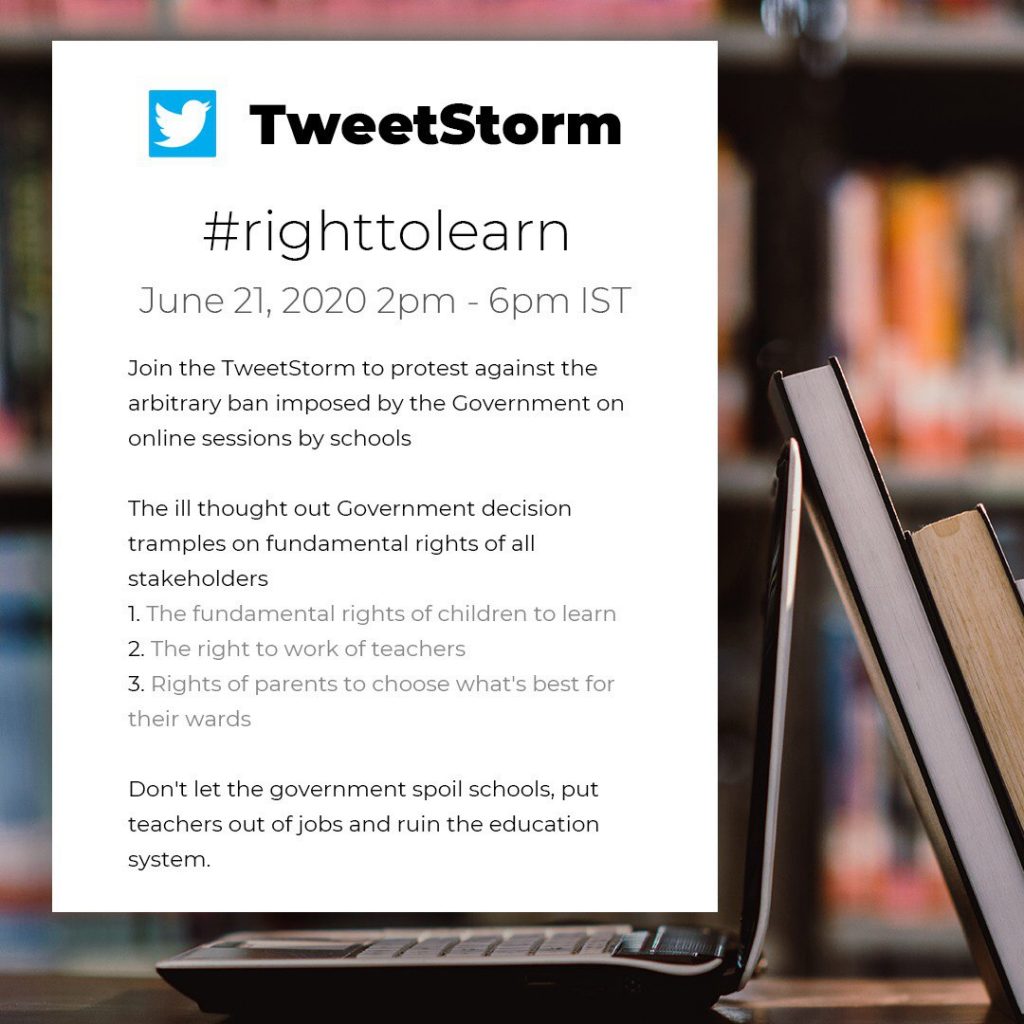Parents, educators, and teachers from Karnataka, Maharashtra, and Madhya Pradesh will join forces on Twitter tomorrow to protest the ban imposed by their governments on online schooling for pre-primary and primary classes.
In all three states, many parents have protested the ban saying that it curtails their freedom to choose the way they want to educate their children. Many educators have also called for better guidelines and have warned that a complete ban on online schooling will result in children missing out on social, psychological, academic and cognitive learning opportunities that are crucial for their age.
Divya Agarwal, Co-founder ProEves, the largest aggregator of preschools in India states that 30-40% of the parents queries on the platform are primarily on online classes and sessions for kids. Without online classes, these parents are struggling to keep their child positively engaged throughout the day.
To protest the ban, parents and educators from all three states will take part in a Tweet Storm on Sunday the 21st of June from 2 pm to 5 pm, with the hashtag #righttolearn.
In Karnataka, the ban extends from pre-primary all the way up till grade 5. In Maharashtra, the ban extends from pre-primary and grade 3. The Madhya Pradesh government has banned online schools until grade 5.
Instead of a blanket ban, the protesting parents and educators believe that the governments should offer guidelines to support better online learning experiences, including a cap on screen time. They argue that if parents don’t have access to online schooling, they will be forced to use unregulated online classes and apps for young children. Such apps can be detrimental because there is no cap on screen-time there and they are also more academic in focus, unlike the more holistic and teacher-driven school programs.
With parents being concerned about sending their children to school during the prevailing pandemic, they believe that unless the healthcare situation is substantially resolved, they will not send their children to schools and in the meantime, children should not stop learning and connecting with their teachers and peers.


